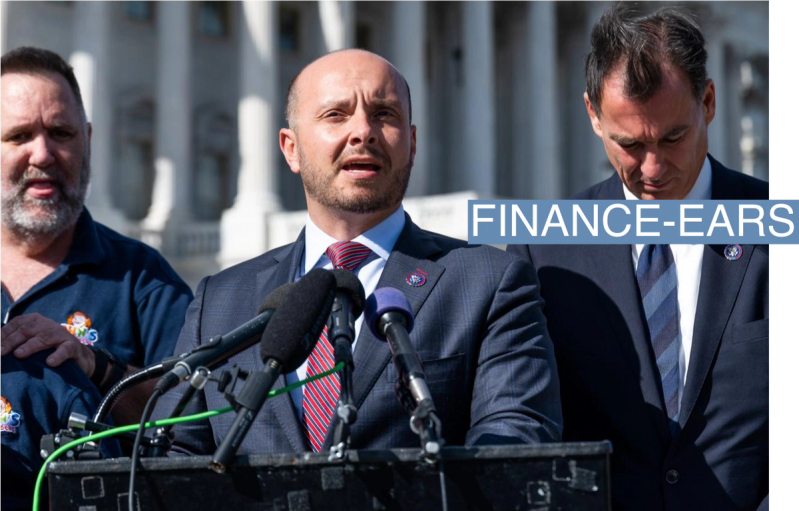The Scoop
A little-known Long Island congressman has been making the rounds on Wall Street in recent weeks, partly to give them a preview of Republicans’ agenda if they win the gavel and partly to charm financiers, who were once reliable GOP stalwarts but have switched sides in recent years.
Andrew Garbarino, a freshman Republican from New York’s 2nd congressional district, has visited Blackstone, Goldman Sachs, BlackRock, Warburg Pincus, New Mountain Capital, and Visa, among others, people familiar with the matter said.
He’s been listening to their priorities and complaints on everything from the deductibility of state and local taxes from federal bills to a raft of proposed new securities regulations, the people said. That outreach could be a boost for Kevin McCarthy, the likely House speaker if the polls hold and Republicans win a majority in next month’s midterms.
The party’s interest in rekindling ties with Wall Street are partly financial, some of the people said. Financiers were once reliable GOP backers — they gave $575 million more to Republicans than Democrats between 1996 and 2014 — but have favored Democrats in their spending in each of the past two election cycles, according to Open Secrets, a clearinghouse for political giving data.

A lawyer by training, Garbarino spent seven years as a state assemblyman in Albany, where he served on the insurance committee. He remains close to the sector and his recent swings through New York have also included visits to MetLife, Guardian, and others.
Wall Street, an engine of New York’s economy, has never been a priority for its hometown congressional representatives of either party, who tend to beat up on it occasionally and ignore it the rest of the time. The House Financial Services Committee’s chair, Maxine Waters, is from California; its ranking Republican, Patrick McHenry, is from North Carolina.
Garbarino could join the committee in January should he win his reelection bid. His district is central Long Island; Rep. Lee Zeldin’s departure would make Garbarino the lone New York Republican on the committee. In Garbarino’s recent tour, he has promised the party will pay more attention to the industry’s priorities, attendees said.
The charm offensive comes as Miami, Dallas and other cities are beckoning financial talent, threatening New York’s primacy as finance’s home.
“There’s a lot more competition from states with more sympathetic representation in Washington,” said Kathy Wylde, who chairs the Partnership for New York, a collection of the city’s business leaders.
In this article:
Liz’s view
There’s an opening now to win back financiers who had shifted to the Democratic party over the past decade — first, charmed by Barack Obama and later, turned off by Donald Trump. In my conversations with Wall Streeters, I’ve noticed a decidedly more conservative bent lately.
Complaints about over-regulation are nothing new, but bankers and investors are more frequently lamenting a lack of their own power. The Biden administration’s appointees in finance are largely academics, not former practitioners.

And though finance executives lean socially liberal, many are turned off by the progressive wing’s leftward lurch on cultural issues. (When New York’s elite private schools started revamping their curricula and offering diversity training for staff, the resulting New York Post stories filled up my text inbox).
With Trump gone — though perhaps not Trumpism — there is an opportunity for Republicans to win back centrist, pro-business moderates.
Room for Disagreement
The pro-business Republican party might not exist anymore. The party is reportedly planning to launch an investigation into the business community’s bluest-blooded club, the U.S. Chamber of Commerce, which it sees as pushing liberal corporate values.
This spring, GOP heavyweights launched a competing lobbying group, the American Free Enterprise Chamber of Commerce, promising to oppose “outdated regulations, future-killing tax policies, and the corporate cronyism and backroom D.C. deal making.”
“If the U.S. Chamber of Commerce calls you and says ‘we want to endorse,’ You’re like, ‘please don’t,’” a GOP Republican consultant told Axios.
Notable
- There are at least 44 bills or new laws in 17 Republican-led states that penalize companies for taking stances on gun control, climate change, diversity and other social issues, according to Reuters.

